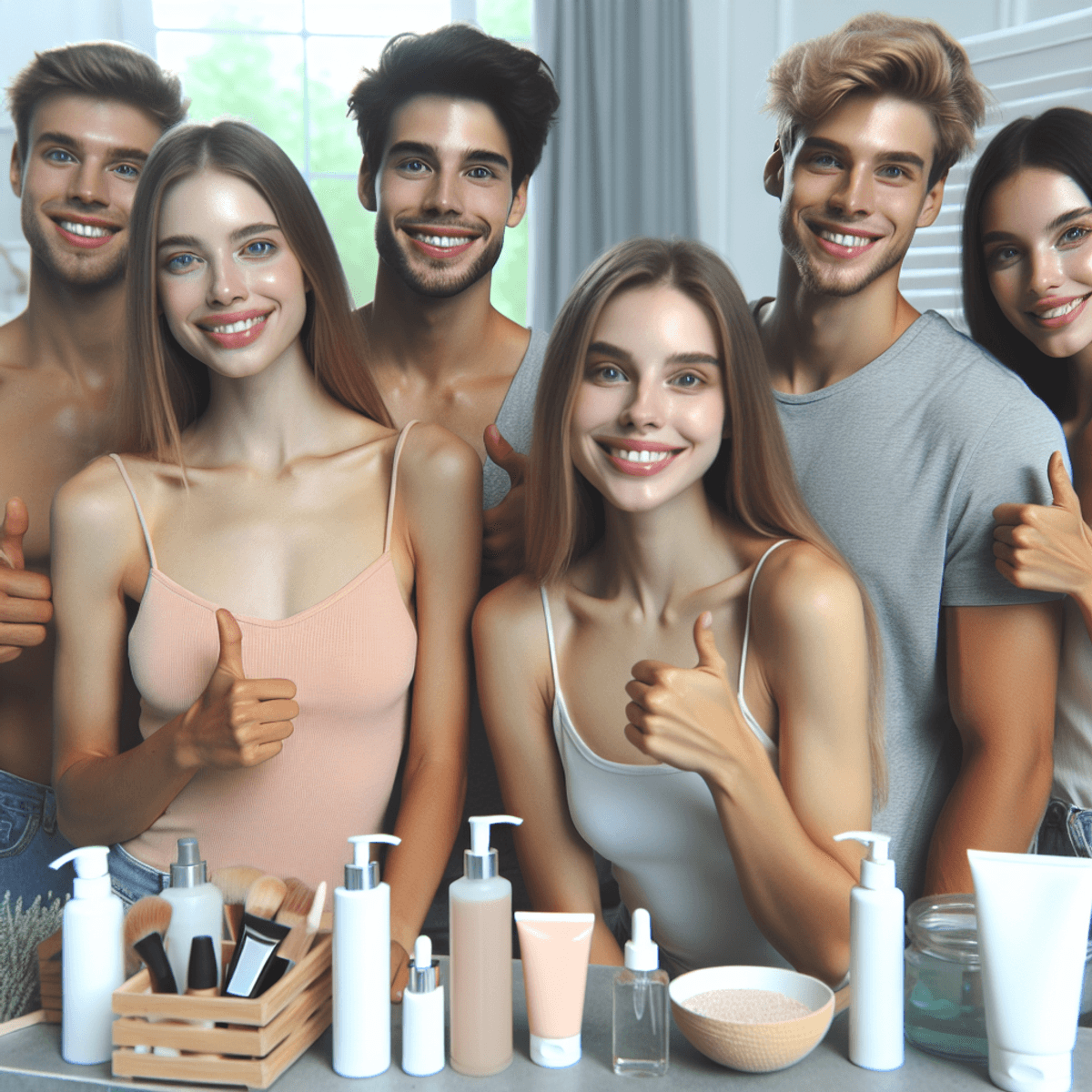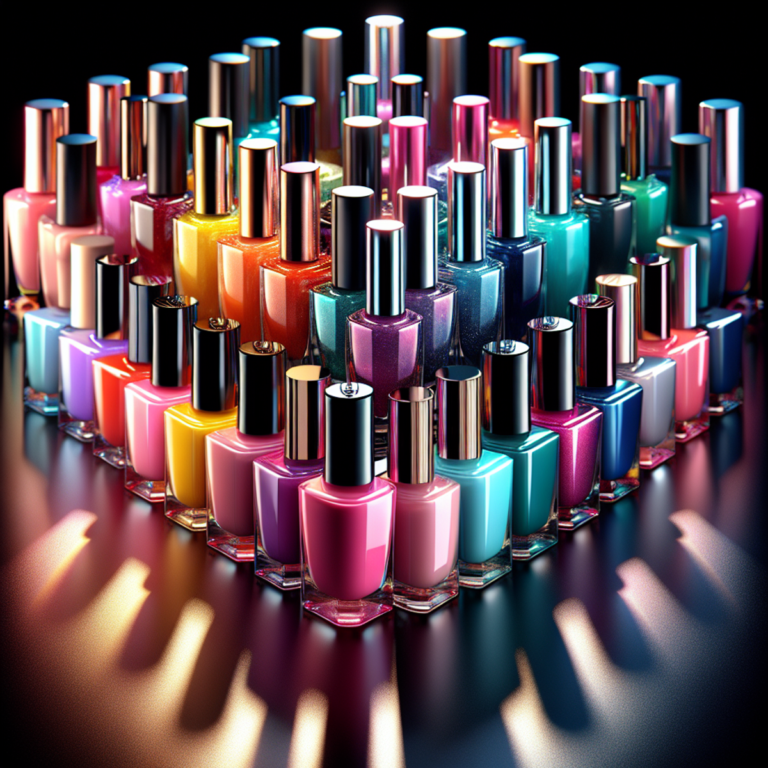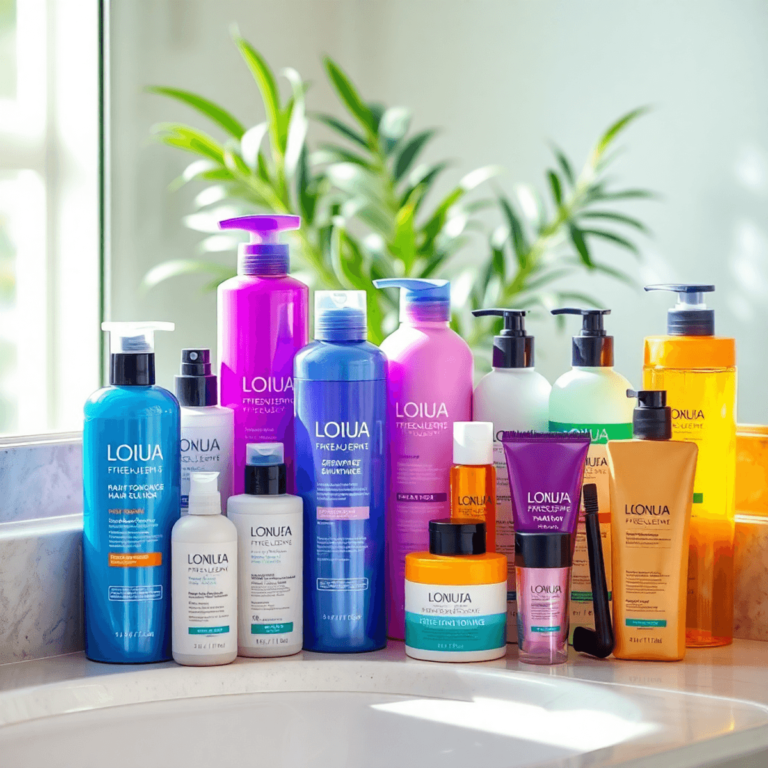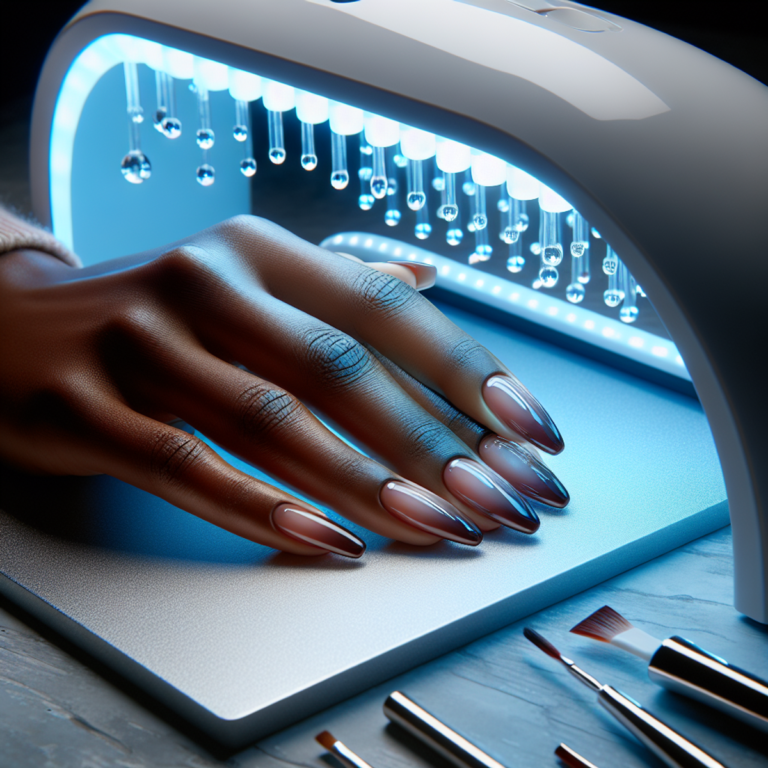A Full Guide On How To Get Rid Of Acne

Introduction
Welcome to A Full Guide On How To Get Rid Of Acne. This comprehensive resource is designed to help you understand and manage acne, a common skin condition that affects individuals of all ages. Whether you’re dealing with occasional breakouts or persistent acne, this guide covers everything you need to know about effective treatments and skincare practices.
In this guide, expect to find:
- Understanding Acne: Detailed descriptions of various forms of acne, such as whiteheads, blackheads, papules, pustules, nodules, and cystic acne. Insights into hormonal imbalances and non-hormonal factors contributing to breakouts.
- Skincare Habits for Managing Acne: Best practices for using gentle cleansers and oil-free moisturizers to avoid skin irritation.
- Avoiding Irritation in Skincare Routine: Tips on selecting suitable products to prevent stripping natural oils from your skin.
- Maintaining Hygiene for Clear Skin: Importance of keeping hair off the face and cleaning items like pillowcases and towels regularly.
- Over-the-Counter Treatments for Acne Control: Information on effective ingredients like benzoyl peroxide and salicylic acid.
- When to Seek Prescription Treatments for Severe Acne?: Guidance on recognizing when over-the-counter solutions are insufficient and exploring prescription options.
- Natural Remedies for Acne Management at Home: Exploring popular natural treatments including tea tree oil and aloe vera.
- Lifestyle Modifications to Support Acne Treatment Efforts: Dietary recommendations and stress management techniques that can help reduce breakouts.
- Advanced Treatments Available for Persistent Cases of Acne: Overview of advanced dermatological treatments such as laser therapy and cortisone injections.
- Preventing Scarring During Acne Healing Process: Strategies to avoid picking at pimples and tips for preventing scars.
By following this guide, you’ll gain valuable insights into achieving clearer skin through personalized treatment plans. Consulting with dermatologists for tailored advice is encouraged to ensure the best results.
Understanding Acne
Acne comes in different forms, each with its own characteristics and treatment needs. Knowing these types can help you understand your skin better and find the right way to deal with breakouts.
Types of Acne
1. Whiteheads (Closed Comedones)
- Appearance: Small, flesh-colored or white bumps on the skin.
- Formation: Occur when pores are clogged with sebum (oil) and dead skin cells.
2. Blackheads (Open Comedones)
- Appearance: Small, dark spots on the skin.
- Formation: Similar to whiteheads but the pore remains open, causing oxidation that turns the clogged material black.
3. Papules
- Appearance: Small, raised, red bumps that may be tender to touch.
- Formation: Result from inflammation around clogged hair follicles.
4. Pustules
- Appearance: Red, inflamed bumps with a white or yellow center filled with pus.
- Formation: Develop when the body’s immune response targets bacteria within a clogged pore.
5. Nodules
- Appearance: Large, painful lumps beneath the surface of the skin.
- Formation: Deep inflammation causes these hard lesions that can sometimes last for weeks.
6. Cystic Acne
- Appearance: Large, pus-filled cysts deep under the skin.
- Formation: Severe form of acne resulting from significant inflammation and infection in clogged pores.
Causes of Acne
Understanding what triggers acne can help in developing effective strategies to combat it. The causes are broadly categorized into hormonal and non-hormonal factors:
Hormonal Imbalances
- Puberty: During adolescence, hormonal changes increase oil production in the skin.
- Menstrual Cycle: Fluctuations in estrogen and progesterone levels can lead to monthly breakouts.
- Polycystic Ovary Syndrome (PCOS): This condition affects hormone levels, often leading to persistent acne.
Non-Hormonal Factors
- Excess Oil Production: Overactive sebaceous glands produce more oil than necessary, clogging pores.
- Bacteria: Propionibacterium acnes (P. acnes) bacteria thrive in clogged pores, leading to inflammation and pimples.
- Dead Skin Cells: Accumulation of dead skin cells on the surface can block hair follicles.
By understanding these different types of acne and their causes, you can take a comprehensive approach to managing breakouts effectively. Whether it’s dealing with hormonal imbalances or non-hormonal factors like excess oil production and bacteria, recognizing these elements is crucial in learning how to get rid of breakouts efficiently.
Skincare Habits for Managing Acne
Effective acne management begins with a consistent daily skincare routine. Central to this routine is the use of a gentle cleanser twice daily. A gentle cleanser helps remove excess oil, dirt, and impurities without stripping the skin of its natural oils. Look for cleansers labeled as “non-comedogenic” to ensure they won’t clog your pores.
Key benefits of using a gentle cleanser:
- Minimizes irritation and redness
- Maintains the skin’s natural moisture balance
- Reduces the likelihood of breakouts
After cleansing, it’s crucial to moisturize. Many people with acne-prone skin avoid moisturizers, fearing increased oiliness and breakouts. However, skipping this step can lead to dehydration, prompting the skin to produce more oil to compensate.
Recommendations for moisturizers:
- Lightweight and oil-free: These formulations hydrate the skin without making it greasy.
- Non-comedogenic: Prevents clogging of pores.
- Ingredients to look for: Hyaluronic acid and glycerin, known for their hydrating properties without adding excess oil.
Incorporating these habits into your daily routine can significantly impact your skin’s health and appearance. A balanced approach ensures you tackle acne without causing additional issues like dryness or irritation.
Avoiding Irritation in Skincare Routine
Using harsh soaps or scrubs can significantly harm your skin. These products often strip away the natural oils that protect and hydrate the skin, leading to dryness, irritation, and even exacerbating acne. It’s crucial to avoid products containing strong detergents like sodium lauryl sulfate or physical exfoliants with large, abrasive particles.
Tips for Choosing Suitable Products:
- Gentle Cleansers: Opt for cleansers labeled as gentle or formulated for sensitive skin. Look for ingredients like glycerin and hyaluronic acid that help retain moisture.
- Chemical Exfoliants: Instead of physical scrubs, consider chemical exfoliants containing alpha hydroxy acids (AHAs) or beta hydroxy acids (BHAs). These ingredients help remove dead skin cells without causing micro-tears.
- Fragrance-Free Options: Fragrances can irritate the skin; choose fragrance-free products to minimize the risk of inflammation.
- Non-Comedogenic Products: Ensure moisturizers and other skincare items are non-comedogenic, meaning they won’t clog pores.
A skincare routine avoiding these harsh elements will help maintain the skin’s natural barrier, contributing significantly to managing acne effectively.
Maintaining Hygiene for Clear Skin
Effective acne management goes beyond skincare products and includes good hygiene practices. Managing your hair is important in preventing breakouts. Keeping your hair away from your face can greatly reduce the risk of acne. Hair products often contain oils and chemicals that can transfer to your skin, clogging pores and causing breakouts.
Here are some key practices to follow:
- Tie back long hair: Use hair ties or headbands, especially during physical activities.
- Wash regularly: Shampoo your hair regularly to prevent oil buildup that can seep onto your skin.
It’s equally important to clean items that come into contact with your face. Pillowcases and towels can harbor bacteria and dead skin cells, both of which can worsen acne.
Here are some tips for keeping things clean:
- Change pillowcases frequently: Aim to switch them out at least twice a week.
- Use clean towels: Avoid using the same towel for multiple days; consider using a fresh one each time you wash your face.
- Avoid sharing personal items: Items like face towels and pillowcases should be used exclusively by you to prevent cross-contamination.
Incorporating these hygiene practices into your routine can help you learn how to get rid of pimples on face more effectively.
Over-the-Counter Treatments for Acne Control
Two highly effective over-the-counter treatments for acne are benzoyl peroxide and salicylic acid.
Benzoyl Peroxide
Benzoyl peroxide works by targeting acne-causing bacteria. It releases oxygen into the pores, creating an environment where these bacteria cannot survive. This reduces the number of acne lesions and prevents new ones from forming. Benzoyl peroxide is available in various concentrations, typically ranging from 2.5% to 10%, allowing you to choose the strength that best suits your skin’s needs. However, it can cause dryness or irritation, so it’s essential to use it in moderation and follow up with a suitable moisturizer.
Salicylic Acid
Salicylic acid focuses on exfoliating the skin and unclogging pores. As a beta hydroxy acid (BHA), it penetrates deep into the skin to dissolve excess oil and dead skin cells that contribute to acne formation. This makes it particularly effective for treating blackheads and whiteheads. Salicylic acid is commonly found in cleansers, toners, and spot treatments with concentrations typically ranging from 0.5% to 2%. Regular use can help keep pores clear and reduce the frequency of breakouts without overly drying out the skin.
Using these treatments as part of your daily skincare routine can significantly improve acne control. Different formulations are available, including gels, creams, washes, and pads, giving you flexibility based on your preferences and skin type.
When to Seek Prescription Treatments for Severe Acne?
Knowing when over-the-counter treatments aren’t enough is key to managing severe acne effectively. If you’ve tried multiple OTC products without noticeable improvement after several weeks, it may be time to consider prescription medications.
When to Consider Prescription Treatments
- Persistent Acne: Breakouts continue despite strict skincare routines and OTC treatments.
- Severity: Painful cysts or nodules that don’t respond to topical treatments.
- Scarring: Visible scarring or risk of permanent damage due to severe breakouts.
- Emotional Impact: Significant distress or impact on quality of life because of acne.
Common Prescription Options
- Oral Antibiotics
- Purpose: Reduces bacteria and inflammation.
- Examples: Doxycycline, Minocycline.
- Topical Retinoids
- Purpose: Promotes cell turnover to prevent clogged pores.
- Examples: Tretinoin, Adapalene.
- Hormonal Treatments
- Purpose: Regulates hormonal imbalances contributing to acne.
- Examples: Birth control pills, Spironolactone.
- Isotretinoin
- Purpose: Treats severe cystic acne unresponsive to other treatments.
- Consideration: Requires close medical supervision due to potential side effects.
Consulting a dermatologist can provide a personalized treatment plan, increasing the chances of achieving clear skin.
Natural Remedies for Acne Management at Home
Exploring natural treatments can be a beneficial addition to your acne management routine. These DIY solutions often use readily available ingredients and provide an alternative to chemical-based products.
Tea Tree Oil
Effectiveness: Tea tree oil is renowned for its antibacterial and anti-inflammatory properties, making it a popular choice for treating acne. Studies have shown that it can reduce the severity of breakouts.
Application: Dilute tea tree oil with a carrier oil (like jojoba oil) before applying it to affected areas. This helps prevent skin irritation which can occur if used undiluted.
Limitations: Tea tree oil may cause dryness or irritation in some individuals. It’s important to perform a patch test before using it extensively on the face.
Aloe Vera
Effectiveness: Aloe vera is celebrated for its soothing and healing properties. It contains salicylic acid and sulfur, both of which are used in acne treatment products. Aloe vera can help reduce inflammation and promote healing of the skin.
Application: Apply pure aloe vera gel directly from the plant or use store-bought versions that contain high concentrations of aloe vera. Use it as a moisturizer or spot treatment.
Limitations: While generally safe, some people may experience allergic reactions to aloe vera. Conducting a patch test is advisable.
Honey
Effectiveness: Honey, especially raw or Manuka honey, possesses antibacterial properties and can help soothe inflamed skin. It also acts as a natural humectant, keeping the skin hydrated.
Application: Use honey as a mask by applying a thin layer to the skin and leaving it on for about 20 minutes before rinsing off with warm water.
Limitations: Honey may not be suitable for those with allergies to bee products and could potentially cause breakouts if not thoroughly rinsed off.
Apple Cider Vinegar
Effectiveness: Apple cider vinegar (ACV) has antibacterial properties and is acidic, which can help balance the skin’s pH levels. It may assist in drying out pimples and reducing their appearance.
Application: Dilute ACV with water (typically one part vinegar to three parts water) and use it as a toner applied with a cotton ball.
Limitations: ACV is highly acidic and can cause burns or irritation if not properly diluted. Always conduct a patch test before full application.
Incorporating these natural remedies into your skincare routine can offer additional benefits alongside conventional treatments. Staying attuned to how your skin reacts will guide you in selecting the most effective solutions tailored to your needs.
Lifestyle Changes to Support Acne Treatment
Maintaining a balanced diet plays a crucial role in managing acne. Certain foods are known for their anti-inflammatory properties, which can help reduce the severity of breakouts. For instance, implementing some healthy eating tips that can help reduce inflammation into your diet could make a significant difference.
Foods That May Help Reduce Inflammation
- Berries: Rich in antioxidants, berries like blueberries, strawberries, and raspberries help fight inflammation.
- Omega-3 Fatty Acids: Found in fatty fish (like salmon and mackerel), chia seeds, and walnuts, omega-3s are essential for reducing inflammation.
- Green Leafy Vegetables: Spinach, kale, and other greens provide essential vitamins and minerals that promote skin health.
Incorporating these foods into your diet can make a tangible difference. A healthy diet not only supports your skin but also improves overall well-being.
Importance of Maintaining a Balanced Diet
A balanced diet ensures that your body receives all the necessary nutrients to function properly. It helps regulate hormone levels and reduces the likelihood of acne flare-ups. Avoiding processed foods and high-sugar items is equally important as they can exacerbate inflammation and trigger breakouts.
How Stress Can Worsen Acne Breakouts
Stress is a significant factor that can worsen acne. When you’re stressed, your body produces more cortisol, which can lead to increased oil production and clogged pores. Managing stress is vital for clear skin.
Techniques for Managing Stress
- Meditation: Regular meditation helps calm the mind and reduce stress levels. Incorporating some nutritional strategies to ease anxiety into your routine can also be beneficial.
- Exercise: Physical activity releases endorphins, which act as natural stress relievers. Activities like yoga, running, or even walking can be beneficial.
- Adequate Sleep: Ensuring you get enough sleep helps regulate hormones and reduces stress.
Implementing these stress reduction techniques into your daily routine will not only support acne treatment efforts but also enhance your overall quality of life. Remember, managing stress is not just about feeling better mentally; it also has significant implications for physical health, including skin health.
Advanced Treatments Available for Persistent Cases of Acne
Persistent acne that doesn’t respond to standard treatments can be particularly frustrating. For severe cases, visiting a dermatology clinic can open up advanced treatment options.
Laser Therapy
Laser therapy has become a popular choice for treating persistent acne. This treatment involves using focused light to target and reduce acne-causing bacteria and excess oil production:
- Benefits:
- Reduces inflammation
- Promotes collagen production
- Decreases the likelihood of scarring
- Improves overall skin texture
There are different types of laser therapies available, such as fractional lasers and pulsed dye lasers, each catering to specific skin needs and conditions.
Cortisone Injections
Deep cystic acne and nodules often require interventions beyond topical treatments. Cortisone injections are a quick and effective solution:
- How It Works:
- A small amount of cortisone is injected directly into the cyst or nodule.
- The injection rapidly reduces inflammation and pain.
- Noticeable improvement within 24-48 hours.
This method is especially useful for those large, painful breakouts that don’t respond well to other treatments.
Combination Therapies
Dermatologists might also recommend combining different treatments to enhance results. Examples include:
- Chemical Peels: These can help exfoliate dead skin cells and reduce blockage of pores.
- Microneedling: Often used in conjunction with other therapies to improve skin texture and reduce scars.
These advanced treatments offer hope for those struggling with severe or persistent acne, making it possible to achieve clearer skin when other methods have failed.
Preventing Scarring During Acne Healing Process
Picking at pimples can significantly increase the risk of scarring and lead to further breakouts. When you squeeze a pimple, you push bacteria deeper into the skin, causing inflammation and potential infection. This can result in more severe acne and long-lasting scars. For effective healing after popping a pimple, consider following some guidelines.
Tips for Preventing Scarring
- Hands-Off Approach: Resist the urge to touch or pick at your acne. Use spot treatments containing benzoyl peroxide or salicylic acid instead.
- Use Non-Comedogenic Products: Opt for skincare products labeled as non-comedogenic to avoid clogging pores.
- Apply Sunscreen Daily: UV exposure can worsen scars. Apply a broad-spectrum sunscreen daily, even on cloudy days.
- Moisturize Properly: Keeping your skin hydrated helps in the healing process. Choose a light, oil-free moisturizer.
- Avoid Harsh Scrubs: Use gentle exfoliators to remove dead skin cells without causing irritation or damage.
How to Get Rid of Pimples Overnight
While it might not be realistic to remove pimples overnight completely, you can reduce their appearance:
- Ice Application: Reduces swelling and redness when applied directly to the pimple.
- Tea Tree Oil: Known for its anti-inflammatory properties, it can help reduce the size of pimples.
- Hydrocolloid Patches: These absorb excess fluids and protect the pimple from bacteria.
Natural Remedies for Permanent Results
Some natural methods may help reduce acne and prevent scarring over time:
- Aloe Vera: Soothes irritation and aids in healing.
- Honey: Its antibacterial properties make it effective in treating acne.
- Green Tea Extracts: Known for reducing inflammation and fighting bacteria.
Preventing scarring during the acne healing process requires consistent care and attention to your skincare routine. By avoiding habits that exacerbate breakouts and employing strategies to reduce inflammation and promote healing, you can achieve clearer skin without long-term marks.
Conclusion: A Holistic Approach Towards Achieving Clear Skin
Achieving clear skin requires a comprehensive approach that addresses the unique needs of your skin. This guide emphasizes the importance of individualized treatment plans tailored to your specific type of acne and skin condition.
- Consulting Dermatologists: Always seek advice from dermatologists to get professional, personalized treatment recommendations. They can provide tailored treatments that over-the-counter products may not offer.
- Consistency is Key: Consistent skincare habits and lifestyle adjustments play a crucial role. From using gentle cleansers to maintaining a balanced diet, every step contributes towards reducing breakouts and promoting healthier skin.
- Embrace a Holistic View: Consider all aspects that influence your skin health, including hormonal factors, stress management, and dietary choices. By integrating these elements into your routine, you can create a more effective strategy for managing acne.
For those seeking an in-depth understanding of how to manage acne effectively, A Full Guide On How To Get Rid Of Acne provides actionable insights and practical advice. Remember, clear skin is achievable with patience, consistency, and the right guidance.
FAQs (Frequently Asked Questions)
What are the different types of acne?
Acne can manifest in various forms including whiteheads, blackheads, papules, pustules, nodules, and cystic acne. Each type has distinct characteristics and can affect the skin differently.
How can I manage my skincare routine to control acne?
To manage acne effectively, it’s important to use a gentle cleanser twice daily to avoid irritation. Additionally, incorporating light and oil-free moisturizers into your daily skincare routine can help maintain hydration without clogging pores.
What should I avoid in my skincare products to prevent irritation?
Avoid using harsh soaps or scrubs that strip natural oils from the skin. Instead, opt for gentle products that are suitable for your skin type to minimize irritation and support healthy skin.
When should I consider prescription treatments for acne?
If over-the-counter treatments are insufficient in managing severe acne, it may be time to seek prescription medications. Common options include oral antibiotics and topical retinoids, which can provide more effective results for persistent cases.
Are there natural remedies that can help with acne?
Yes, popular natural remedies such as tea tree oil and aloe vera have been discussed for their effectiveness in treating acne. However, it’s important to understand their limitations and consult with a dermatologist for personalized advice.
How can I prevent scarring during the healing process of acne?
To prevent scarring while healing from acne, avoid picking at pimples as this can lead to further breakouts and permanent marks. Focus on gentle care and follow tips for preventing scarring during the healing process.










